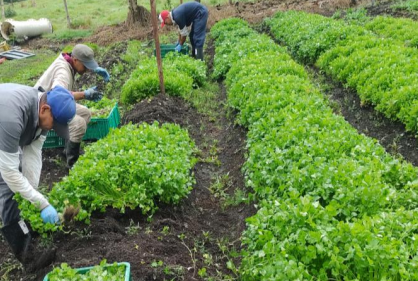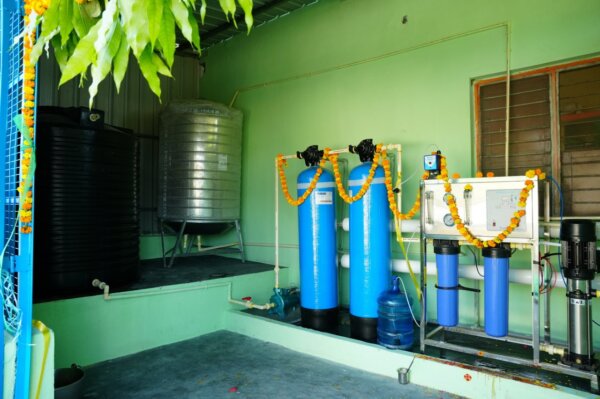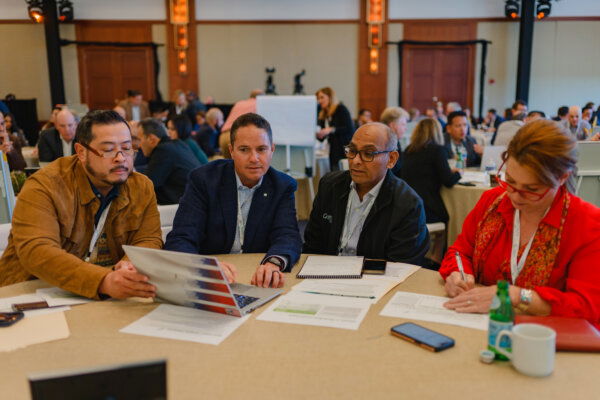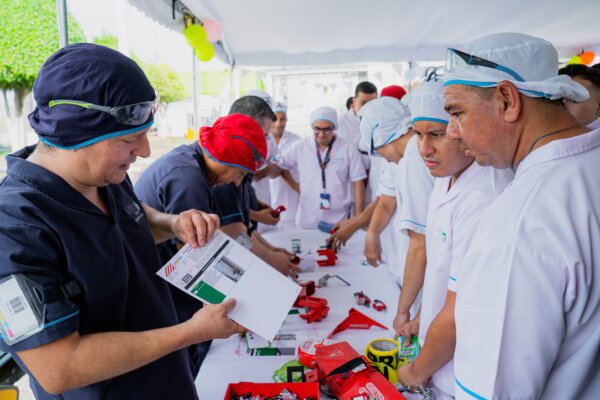Partnering to Create Sustainable Food System Networks
Sustainable, resilient food systems are vital for the health of both people and the planet. By collaborating with customers, suppliers, farmers, and stakeholders, we are scaling regenerative agriculture practices, supporting livelihoods, and advancing toward net-zero supply chains.



Regenerative Agriculture
Regenerative agriculture plays an important role in building sustainable food system networks. By partnering with key customers, suppliers and farmers, we are advancing the adoption of regenerative practices. Practices enhance soil health and biodiversity, improve water stewardship and/or reduce emissions, while making farming more productive and profitable. As part of our 2030 Aspirations, we aim to advance regenerative agriculture practices across 1 million acres by 2030. There is no one-size-fits-all solution, which is why we are currently piloting and scaling over a dozen different regenerative agriculture projects around the world. Today, we have over 100,000 acres underway.
One of our biggest projects is focused on regenerative wheat in Ontario, Canada. Since the project’s inception in 2024, 37 farmers across 11,000 acres have grown over 1 million bushels of wheat using practices such as no-tillage, cover crops, and fertilizer management with the aim of generating fewer greenhouse gas emissions and improving carbon sequestration and soil health.

Regenerative Agriculture Partnerships
In 2025, we launched a partnership with PepsiCo and Milhão to launch a pioneering farmer incentive program advancing regenerative agriculture in Brazil’s Cerrado region, one of the world’s most biodiverse savannas and a major producer of the country’s soybeans and corn. The initiative introduces a hybrid “payment for practice and payment for outcomes” model that directly rewards farmers for implementing regenerative agriculture practices. Beginning with 7,000 acres and backed by a $1 million investment over three years, the program is designed to scale to over 30,000 acres and drive measurable environmental and economic impact for local growers. Learn More
Is your company interested in sustainable sourcing in these regions? These programs are built to partner, scale, and provide onboarding options for more farmers, suppliers, and food companies. If interested, contact us today.

“Food systems are complex, however we have a massive opportunity to create positive change throughout our food system as we work toward our goals. It is impossible to achieve impact alone and partnerships are vital to our ability to achieve our Aspirations.”
Bernard Hayman, Global Director Sustainable Food System Networks

Net Zero Action
We are advancing climate action by working towards SBTi-validated carbon reduction goals across Scopes 1, 2 and 3 by sourcing renewable energy, partnering with our suppliers to adopt sustainability best practices, cut emissions, and create positive impact in the value chain. This includes our 2030 targets to reduce absolute scope 1 and 2 greenhouse gas emissions by 50% from a 2020 baseline, and a commitment to reduce scope 3 greenhouse gas emissions by 23% per tonne of product produced from a 2020 baseline.
We aim to be net zero across our value chain by 2040 and are working on our roadmap.

Working with suppliers towards net zero
Supplier engagement is crucial to achieving our sustainability goals. We use the EcoVadis supplier assessment tool to track progress on environmental, ethics, labor and human rights, and sustainable procurement issues with our suppliers, as well as our own company’s performance.
Griffith Foods was awarded with a gold medal, and we are proud that 78% of our spend was sourced from suppliers with a bronze or higher medal from EcoVadis. This is an acknowledgment of the suppliers’ hard work to implement policies and practices that improve sustainability and human rights in their operations.

Improving Livelihoods
A sustainable food system drives positive benefits for farmers in addition to the land and ingredients they cultivate.
We are working towards improving the livelihoods of 25,000 farmers and their families. With the support of our TEROVA team and other partners, we ensure farmers are paid a living wage and receive a boost to their incomes by taking part in pilot programs such as those promoting regenerative agriculture.
Explore Our 2030 Aspirations
We believe food has the power to nourish both people and the planet. And by making it affordable and taste delicious, we can encourage more people and businesses to make healthier, more sustainable choices.

Why we do what we do
By transforming business and collaboration, we restore nature, improve lives, and ensure sustainable nutrition for all.

Developing a nutritious and sustainable portfolio
Sustainable nutrition is at the core of how we are innovating as a business and setting ourselves up for the future.

Creating new markets and serving the underserved
Nourishing the world means addressing global challenges like food insecurity and malnutrition.
Fostering the wellbeing and fulfilment of our people
We want all of our people to feel like they can be their true selves at work.






